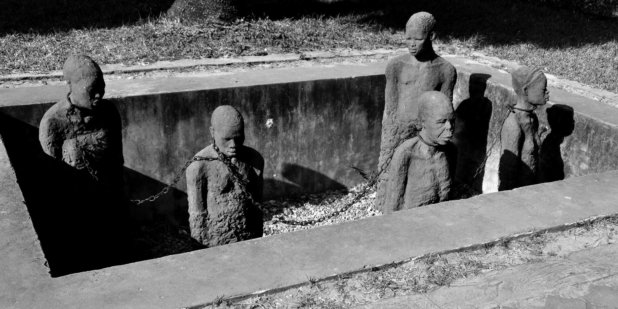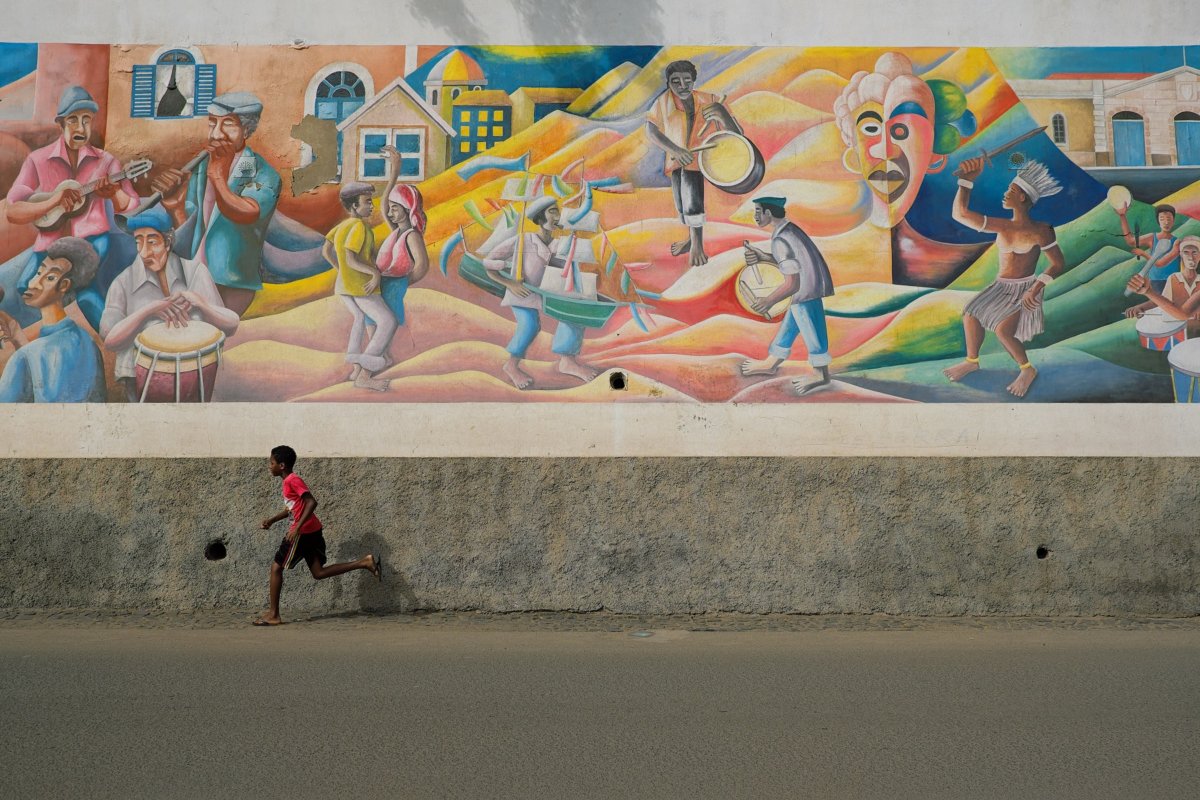- About
- Topics
- Picks
- Audio
- Story
- In-Depth
- Opinion
- News
- Donate
-
Signup for our newsletterOur Editors' Best Picks.Send
Read, Debate: Engage.

In the Vila Nova suburb of Cape Verde’s capital Praia, Neguinho walks daily in the streets moving from one neighbourhood to the other attracting a large following of youth and children and commanding unmatched respect. He is a man on a larger than life mission. That of connecting tens of thousands of Cape Verdeans to their complicated and controversial past and heritage, a topic that evokes a cocktail of emotions with every sunrise. It is the story of a person tied to the yoke of ancient slavery that altered their way of life and relation with the rest of the world.
Neguinho whose real name is Renato is the son of a migrant and has lived in Netherlands since his father moved there. But a burning desire to connect with his culture sent him back to Cape Verde where he has been confronted first hand by the magnitude of the identity crisis and racial chasm that an entire generation has struggled to heal from.
It goes back to 1460 when the archipelago, then uninhabited, was discovered by the Portuguese. Due to its strategic location between Africa and Americas it became a hub for the famed Trans-Atlantic slave trade where up to 12 million slaves, majority from West Africa, were shipped from Africa to Americas and Europe. Being a central trading point for slaves, up to 3,000 slaves from Cape Verde would be sold yearly. The interaction of slaves and merchants from Portugal, Britain and Americas created a cocktail of cultures and identities that gave rise to a mixed society by the time slavery was being abolished in 1869 before metamorphosing into a crisis of identity when Cape Verde gained independence in 1975.

But what fuelled this conflicted identity more was the miscegenation, the interbreeding of the Portuguese and the Africans in Cape Verde, usually viewed in the prism of sexual violence as white merchants sexually assaulted African women. To date this has served as a poignant reminder of the impact slavery had on oppression, colour and a people’s way of life.
As the Cape Verdeans look to this complicated past for answers, language equally dominates the discourse. While Portuguese has traditionally been the official language, Creole, a language that was used by slaves to communicate across valleys and was associated with resistance, found its way into the Cape Verde culture and has since become an infusion of Portuguese and many African languages.
To remind themselves of their forefathers and celebrate the struggles they went through, people like Neguinho have embraced names that symbolize this journey. Denoting a little Negro in Portuguese, the term Neguinho was used by merchants to as a blanket name for slaves who didn’t have names, at least according to the merchants. The slaves didn’t exist as humans but commodities. Yet for Neguinho, this name symbolizes the existence of his lineage, and the journey he and thousands of Cape Verde’s walk as they try to come to terms with who they are.
"Today I run, here in the last piece of earth, in this rock in the Atlantic Ocean called Cabo Verde."
Renato
“I am Neguinho and I come from very far. There is no greater agony than bearing an untold story inside of you. Today I am aware of that. Today I walk surely on the path of true self, looking for myself, allowing my soul to manifest itself. Today I run, here in the lost piece of earth, in this rock in the Atlantic Ocean called Cabo Verde. After spending life in the other parts of the world, I realized I only belong here, in this place with a big colonial trauma,” he said.
The blend of skin colours emanating from the activities of the centuries-old slave trade and the colonization by the Portuguese has also advanced the narrative of the people of Cape Verde not being Africans, a notion that has been so entrenched to date it is still a subject of heated debate and has been one of the key drivers of the identity crisis. One school of thought posits that Cape Verdeans are not Africans but special blacks who have a closer link to Portuguese than Africans. Yet for others like Neguinho, tracing the identity and history of a people based on the arrival of those who advanced atrocities among Cape Verdeans is remaining prisoners of the same oppressors.
“They call us Creoles, after all the atrocities we have been through, all these centuries. Today I scream for equality and justice and they tell me to behave. But I question their mental sanity, because they know we used to be slaves. Today I share my ancestor’s heritage,” he said.
And although there are attempts at cementing Cape Verde’s culture and language to have an identity of its own, including creation of more Criolo music and poetry, parliament discussing having Criolo as the official language alongside Portuguese and scholars preparing the first Criolo dictionary that will be used in schools, the conflict of identity is ever alive today. For the young generation to be or not to be African is a daily thought as the journey from slavery gets no attention in schools. It is a mission Neguinho has vowed to advance insisting that a people looking for a future must confront their past no matter how painful. He is passing this conviction to the young generation through music, dance, literature and capoeira.
“Today we are here, running, walking, thinking, creating, sharing, resisting, feeling, dancing, fighting, laughing, crying, transcending who we are, who we have been to what we have to become,” he said.